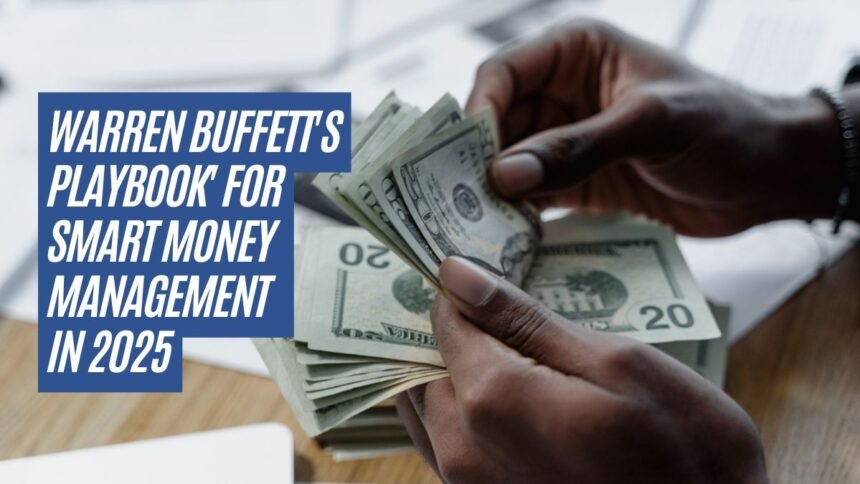Hey everyone! Can we just skip the fancy intros? Seriously, who doesn’t want to manage their money like the Oracle of Omaha, Warren Buffett? The man’s a legend, and while we might not all be buying railroads anytime soon, his core strategies? Man, they’re timeless. As we barrel into 2025, inflation is being weird, the market’s bouncy, and honestly, it feels like everyone’s yelling advice at once.
So, I’ve broken down the Buffett philosophy into five super-casual, totally-actionable steps. Think of this as us just chatting over coffee about how to be financially smarter, not just richer. You ready? Let’s dive in!
Ditch the Fancy Stocks and Invest in You!
I’m going to start with a spicy take, your biggest asset isn’t some hot tech stock, it’s you. Seriously. Buffett has said time and time again that the best investment you can ever make is one in yourself. Why? Because skills, knowledge, and talent are deflation-proof, recession-proof, and the tax man can’t take them away.
Think about it, You could spend $10,000 trying to ‘time the market,’ or you could spend that same amount on a certification, a high-value skill course, or even just books that make you better at your job. The ROI on learning is just insane, and it’s compounding. You level up your earning power forever! Don’t you want to be the kind of person whose income potential constantly rises? I sure do! We often get so caught up looking for the next Apple, we forget we should be optimizing our own personal Apple stock!
My Personal Takeaway, stop procrastinating on that course you’ve been eyeing. Take it now.
Buy a Business, Not a Ticker Symbol (Ditch the Day Trading Nonsense)
Listen, I see you refreshing your phone every 15 minutes. Stop. Just stop. Buffett isn’t checking stock prices every day, he’s thinking like an owner. When he buys stock, he’s buying a piece of a company, a real-life business with employees, products, and a future.
This is where the super-cool term “Economic Moat” comes in. It basically means: Does this business have a massive, sustainable competitive advantage that keeps competitors out? Think of a literal moat around a castle it protects the king (the company’s profits). Maybe it’s a killer brand (Coca-Cola), a network effect (Visa), or super-low production costs. If the business has a wide, deep moat, you buy it, you understand it, and you leave it alone. The daily market noise? That’s just a crazy, emotional party you don’t need an invitation to. Volatility isn’t risk, permanent loss of capital is.
My Personal Takeaway, If you can’t comfortably hold a stock for ten years, don’t hold it for ten minutes.
The ‘Margin of Safety’ Rule, Always Buy with a Cushion
Here’s the truth, we’re all going to mess up. I’ve made bad calls, you’ve made bad calls. It happens! That’s why the idea of a ‘Margin of Safety’ is pure genius, and it’s the core of value investing.
It means buying a dollar’s worth of assets for 50 cents. You estimate what the business is really worth its intrinsic value and you only buy it if the market price is significantly lower. Why the gap? That gap is your insurance policy against your own bad calculations, against unforeseen economic disasters, and against a volatile future. You wouldn’t drive a car without seatbelts, would you? Well, buying without a margin of safety is like driving a business into a brick wall without any protection. Be a smart shopper, not a desperate gambler. Wait for the sale!
My Personal Takeaway, Never pay full price for quality.
Be Fearful When Others Are Greedy (And Keep Some Cash!)
This is perhaps Buffett’s most famous piece of advice, and honestly, it’s the hardest one to follow. When the market is booming, everyone’s feeling like a genius, and your neighbor is talking about their latest huge crypto win that’s when you should be getting uncomfortable. That’s greed.
On the flip side, when the news is terrifying, people are panicking, and the entire market is a sea of red that’s the time to feel greedy. You can’t be greedy unless you have a stack of cash ready. That cash isn’t ‘lazy money’, it’s ‘optionality money.’ It’s dry powder. I’m not saying sell everything and live under a rock, but having a decent war chest ready to deploy when literally everyone else is too scared to buy? That’s how fortunes are made. It’s an emotional game, and the person who controls their emotions wins. Period.
My Personal Takeaway, Designate a ‘crisis fund’ separate from your emergency fund, and leave it alone.
My Final Thoughts, Just Between Us…
Look, getting rich slowly isn’t sexy. It doesn’t make for viral TikToks. But it works. In 2025 and beyond, the biggest threat to your financial health isn’t some complex derivative, it’s your own tendency to chase quick wins and react emotionally. Buffett’s genius is in his patience and his discipline. He basically waits until the pitch is perfect, and if it’s not perfect, he just lets it go by.
I really think if we all just dial down the noise, stop comparing our portfolios to the guy next door, and focus on owning great things for great prices (and getting better ourselves!), we’ll all be much, much better off. Don’t worry about being a millionaire next week, worry about being a smarter, calmer investor today. You’ve got this!












